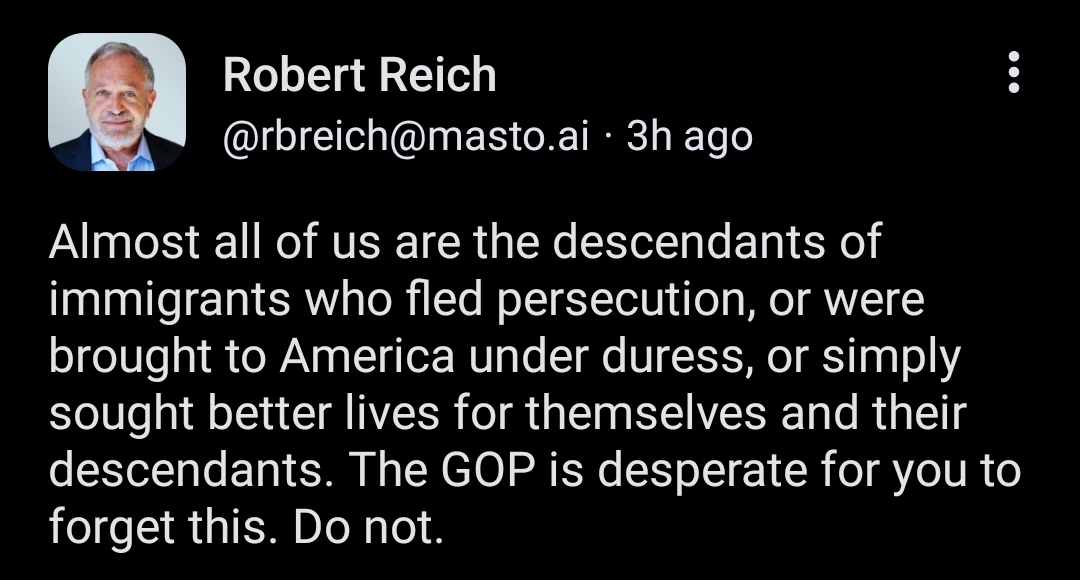this post was submitted on 14 Jan 2024
596 points (96.4% liked)
People Twitter
5230 readers
1156 users here now
People tweeting stuff. We allow tweets from anyone.
RULES:
- Mark NSFW content.
- No doxxing people.
- Must be a tweet or similar
- No bullying or international politcs
- Be excellent to each other.
founded 1 year ago
MODERATORS
you are viewing a single comment's thread
view the rest of the comments
view the rest of the comments

Being of middle-class standing doesn't invalidate that they were seeking adventure, opportunity, or freedom. What a strange conclusion to arrive at.
What kind of adventure though? Freedom to do what exactly? What they were seeking is a bit different from what the current immigrants are seeking dont you think?
Edit it does invalidate the narrative that the early settlers were impoverished or convicted people fleeing an oppressive feudal england, which the tweet seems to suggest.
There were those too. Just because 45% of the people arriving were middle class, doesn't mean that nobody was poor. There were people who would commit to 7 years of indebted servitude in the new world to cover the cost of their move. Nobody does that if they have any money. Additionally, you're viewing things from a modern perspective. Middle class did not mean what it means today, and life under English rule was not as it is today. The Irish specifically came here to escape oppression, and then found more here. They didn't escape their oppression here until centuries later, but even then, they still found the Americas to be the lesser of the two oppressive environments.
Whats the "45% were middle class" referring to? Also I didn't say nobody coming into the US was poor, my main gripe is with the "Almost all of us", as if the white immigrants benefitting from slavery and genocide were a small part. As for what the white laborers were up to, we only need to read a bit further in the book I'm urging everyone here to read:
If you want to actually know about the irish and other immigrant workers and don't like to read that much I would recommend Chapter 4.5 "Contradictions of white labor" where this passage is from, but again the whole book is superb.